Ukraine: Russia’s Continuing Violations of International Law Against Civilians and POWs
Updates for 2024–2025
By Free Russia Foundation October 08, 2025
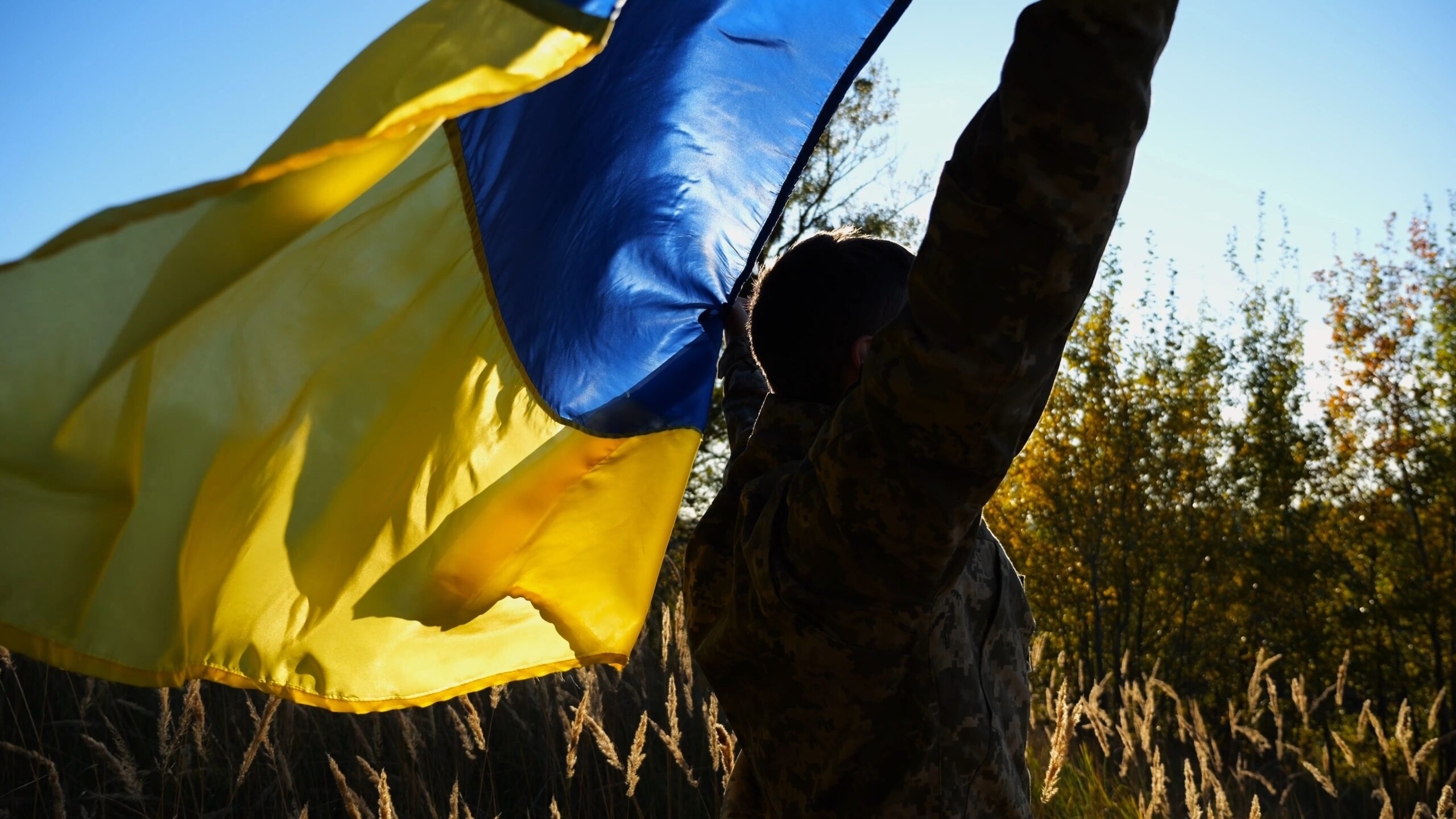
Updates for 2024–2025
By Free Russia Foundation October 08, 2025

Put simply, the invasion of Ukraine by Russian Federation forces (starting in 2014 and culminating in 2022 with the full‑scale invasion) plus the ensuing, ongoing atrocity crimes that followed amount to some of the most egregious violations of international law since the founding of the international rules‑based order post‑World War Two.
Most acutely, Russia invading a neighboring country for territorial annexation is the most brazen act of aggression since Nazi tanks did the same across Europe more than 80 years ago. In the immediate aftermath, Russia’s war in Ukraine plus other horrendous conflicts around the globe have led to a common narrative that international law is faltering, unable to stop the bloodshed, let alone help these conflicts reach a peaceful conclusion. In short, this narrative concludes that international law has failed us.
This narrative, however, takes a narrow and overly pessimistic view of what is happening. I suggest we look at the events happening around us differently. For instance, we need to amplify how civil society around the globe — most especially in Ukraine and in allied societies — has stood up in defense of the rule of law, justice, and accountability to a degree never seen before. More than just the steady flow of protests, so many civil society actors of different stripes have raised awareness of widespread criminality, given voices to victims and survivors alike, helped affected communities rebuild, collected evidence ready for court, identified perpetrators and senior‑level organizers of atrocity crimes, demanded respect for international law, and pushed policymakers to make the changes necessary to effectuate real change.
Even in the face of drastic funding cuts and commentary about international law being expendable, the voices of everyday people have stayed resolute, kept governments to their pledges of upholding the rules‑based order, and prevented a precipitous backslide into unabashed realpolitik. Yes, the change desired often does not happen with the speed and degree that most of us want to see, yet do not be fooled that positive change is not happening. It is and the more civil society stands firm behind the principles of democracy and the rule of law, the closer we get to building the better world we all want.
This report is a textbook example of how civil society fights back against these unprecedented attacks on democratic and legal values. This paper was prepared by Jasmine Cameron, Natalie Landau, Vladimir Zhbankov, and myself, and we hope it helps all of you with your own fight in support of international law, justice, and accountability.
Put simply, the invasion of Ukraine by Russian Federation forces (starting in 2014 and culminating in 2022 with the full‑scale invasion) plus the ensuing, ongoing atrocity crimes that followed amount to some of the most egregious violations of international law since the founding of the international rules‑based order post‑World War Two.
Most acutely, Russia invading a neighboring country for territorial annexation is the most brazen act of aggression since Nazi tanks did the same across Europe more than 80 years ago. In the immediate aftermath, Russia’s war in Ukraine plus other horrendous conflicts around the globe have led to a common narrative that international law is faltering, unable to stop the bloodshed, let alone help these conflicts reach a peaceful conclusion. In short, this narrative concludes that international law has failed us.
This narrative, however, takes a narrow and overly pessimistic view of what is happening. I suggest we look at the events happening around us differently. For instance, we need to amplify how civil society around the globe — most especially in Ukraine and in allied societies — has stood up in defense of the rule of law, justice, and accountability to a degree never seen before. More than just the steady flow of protests, so many civil society actors of different stripes have raised awareness of widespread criminality, given voices to victims and survivors alike, helped affected communities rebuild, collected evidence ready for court, identified perpetrators and senior‑level organizers of atrocity crimes, demanded respect for international law, and pushed policymakers to make the changes necessary to effectuate real change.
Even in the face of drastic funding cuts and commentary about international law being expendable, the voices of everyday people have stayed resolute, kept governments to their pledges of upholding the rules‑based order, and prevented a precipitous backslide into unabashed realpolitik. Yes, the change desired often does not happen with the speed and degree that most of us want to see, yet do not be fooled that positive change is not happening. It is and the more civil society stands firm behind the principles of democracy and the rule of law, the closer we get to building the better world we all want.
This report is a textbook example of how civil society fights back against these unprecedented attacks on democratic and legal values. This paper was prepared by Jasmine Cameron, Natalie Landau, Vladimir Zhbankov, and myself, and we hope it helps all of you with your own fight in support of international law, justice, and accountability.
The following paper outlines ongoing, systematic and widespread violations committed by Russian forces in Ukraine in 2024 and 2025, as well as identifies major accountability gaps. This note also reviews the relevant international legal frameworks and recent cases, concluding with recommendations for a coordinated international response.
The following paper outlines ongoing, systematic and widespread violations committed by Russian forces in Ukraine in 2024 and 2025, as well as identifies major accountability gaps. This note also reviews the relevant international legal frameworks and recent cases, concluding with recommendations for a coordinated international response.
Since Russia’s full‑scale invasion of Ukraine in February 2022, many entities, through extensive documentation, have established that civilians and prisoners of war captured by Russian or Russian‑affiliated forces have been subjected to widespread and systematic abuses and serious human rights violations, including torture, arbitrary detention, and forced deportations.
At the same time, enforced disappearances of journalists, civil society actors, human rights defenders and local political leaders have increased, often accompanied by incommunicado detention and mistreatment. Together, these practices constitute serious breaches of international human rights, humanitarian, and criminal law, and in many cases amount to war crimes and crimes against humanity.
This update aims to present a few of the most recent cases (2024‑2025), highlight patterns, assess compliance with international obligations, and draw attention to gaps and accountability challenges. It provides fresh empirical data from civil society sources to inform legal and policy responses.
Since Russia’s full‑scale invasion of Ukraine in February 2022, many entities, through extensive documentation, have established that civilians and prisoners of war captured by Russian or Russian‑affiliated forces have been subjected to widespread and systematic abuses and serious human rights violations, including torture, arbitrary detention, and forced deportations.
At the same time, enforced disappearances of journalists, civil society actors, human rights defenders and local political leaders have increased, often accompanied by incommunicado detention and mistreatment. Together, these practices constitute serious breaches of international human rights, humanitarian, and criminal law, and in many cases amount to war crimes and crimes against humanity.
This update aims to present a few of the most recent cases (2024‑2025), highlight patterns, assess compliance with international obligations, and draw attention to gaps and accountability challenges. It provides fresh empirical data from civil society sources to inform legal and policy responses.
To assess the scope and gravity of these ongoing violations, it is essential first to consider the body of international law that governs state and non‑state conduct during armed conflict. Well‑documented violations by Russian and Russian linked forces include, inter alia, arbitrary detention and unlawful deprivation of liberty, torture and other cruel, inhuman, or degrading treatment, as well as deportations and forced transfers of civilians.
These acts have taken place in multiple contexts:
To assess the scope and gravity of these ongoing violations, it is essential first to consider the body of international law that governs state and non‑state conduct during armed conflict. Well‑documented violations by Russian and Russian linked forces include, inter alia, arbitrary detention and unlawful deprivation of liberty, torture and other cruel, inhuman, or degrading treatment, as well as deportations and forced transfers of civilians.
These acts have taken place in multiple contexts:
International humanitarian law (IHL), which is often described as the law of war and primarily guided by the Geneva Conventions of 1949 and their Additional Protocols, governs the conduct of parties engaged in armed conflict and aims to protect individuals who are not, or are no longer, participating in hostilities, including civilians and prisoners of war (POWs).
For instance, Geneva Convention IV (GC IV) provides that civilians in occupied territories are “protected persons” and must be treated as such at all times. Similarly, Geneva Convention III (GC III) protects POWs. Both treaties, along with customary IHL, prohibit arbitrary detention, torture, cruel treatment, and outrages upon personal dignity, among many other violations that are not automatically considered war crimes. However, those violations that are grievous in nature, committed in the war context, and with criminal intent typically amount to war crimes.
Authorities have asserted that the arbitrary detention of Ukrainian civilians, whether during the filtration process or following capture during military operations, likely constitutes a breach of the Geneva Conventions and thus potentially constitute a war crime under IHL.
International humanitarian law (IHL), which is often described as the law of war and primarily guided by the Geneva Conventions of 1949 and their Additional Protocols, governs the conduct of parties engaged in armed conflict and aims to protect individuals who are not, or are no longer, participating in hostilities, including civilians and prisoners of war (POWs).
For instance, Geneva Convention IV (GC IV) provides that civilians in occupied territories are “protected persons” and must be treated as such at all times. Similarly, Geneva Convention III (GC III) protects POWs. Both treaties, along with customary IHL, prohibit arbitrary detention, torture, cruel treatment, and outrages upon personal dignity, among many other violations that are not automatically considered war crimes. However, those violations that are grievous in nature, committed in the war context, and with criminal intent typically amount to war crimes.
Authorities have asserted that the arbitrary detention of Ukrainian civilians, whether during the filtration process or following capture during military operations, likely constitutes a breach of the Geneva Conventions and thus potentially constitute a war crime under IHL.
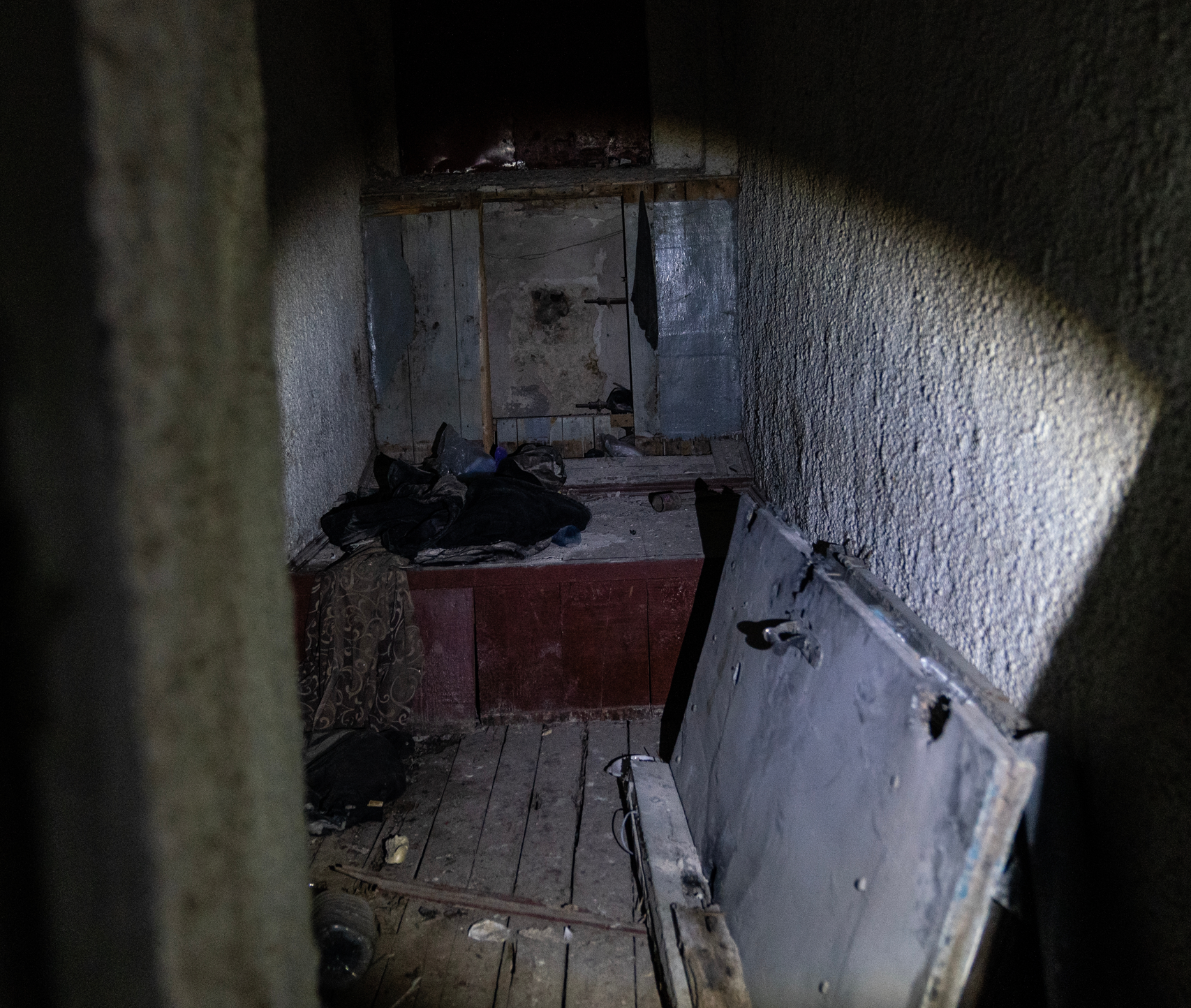

Civilians are frequently held without charge, cut off from their families and denied access to legal remedies, all of which violate fundamental IHL protections. And more grave reported violations of torture and inhuman treatment, including beatings, electric shocks, and the deprivation of basic necessities, most certainly amount to war crimes.
These violations, while assessed here through the lens of international humanitarian law, also carry significant implications for accountability under complementary bodies of international law, discussed below.
Civilians are frequently held without charge, cut off from their families and denied access to legal remedies, all of which violate fundamental IHL protections. And more grave reported violations of torture and inhuman treatment, including beatings, electric shocks, and the deprivation of basic necessities, most certainly amount to war crimes.
These violations, while assessed here through the lens of international humanitarian law, also carry significant implications for accountability under complementary bodies of international law, discussed below.
International human rights law (IHRL) applies during times of peace and conflict, operating alongside IHL and other international legal frameworks. IHRL is guided by a variety of international sources, including:
International human rights law (IHRL) applies during times of peace and conflict, operating alongside IHL and other international legal frameworks. IHRL is guided by a variety of international sources, including:
For instance, Article 9 of the ICCPR provides that every person has the right to liberty and security and is protected against arbitrary arrest or detention. The filtration‑related detention of civilians — often without legal grounds, notification of rights, or judicial oversight — violates this right.
The U. N. Human Rights Committee has clarified that “arbitrariness” includes elements such as injustice, unpredictability, and lack of due process, even in times of emergency or conflict. While states may derogate from some rights during a public emergency, such derogations must be strictly necessary and proportionate to the situation. From the information gathered, arbitrary detention during filtration procedures fail this test.
Additionally, torture and other cruel, inhuman, or degrading treatment is prohibited under Article 7 of the ICCPR and Article 2 of CAT, both of which preclude derogations, even in situations of war or public emergency. The forms of abuse documented in Russian‑controlled territories fall squarely within the scope of prohibited treatment under international human rights law. Superior orders are not a defense.
Furthermore, the obligation to prevent and punish certain violations, including torture, is binding on all state actors under customary international law.
For instance, Article 9 of the ICCPR provides that every person has the right to liberty and security and is protected against arbitrary arrest or detention. The filtration‑related detention of civilians — often without legal grounds, notification of rights, or judicial oversight — violates this right.
The U. N. Human Rights Committee has clarified that “arbitrariness” includes elements such as injustice, unpredictability, and lack of due process, even in times of emergency or conflict. While states may derogate from some rights during a public emergency, such derogations must be strictly necessary and proportionate to the situation. From the information gathered, arbitrary detention during filtration procedures fail this test.
Additionally, torture and other cruel, inhuman, or degrading treatment is prohibited under Article 7 of the ICCPR and Article 2 of CAT, both of which preclude derogations, even in situations of war or public emergency. The forms of abuse documented in Russian‑controlled territories fall squarely within the scope of prohibited treatment under international human rights law. Superior orders are not a defense.
Furthermore, the obligation to prevent and punish certain violations, including torture, is binding on all state actors under customary international law.
International criminal law (ICL) establishes the basis for individual criminal responsibility for war crimes, crimes against humanity, genocide, and aggression, collectively called “atrocity crimes.“ This body of law provides a mechanism for accountability when state compliance falters.
ICL is made up by a broad cross‑section of conventional and customary international laws with the Rome Statute of the International Criminal Court (ICC) often seen as the most complete single instrument. The statutes of ad hoc and hybrid tribunals, such as those for the former Yugoslavia and Rwanda, together with customary international criminal law (especially on crimes against humanity) have played an important role in shaping international criminal law and establishing individual responsibility for atrocity crimes.
The alleged acts committed by Russian forces (e.g., arbitrary detention, torture, forced transfers) would constitute crimes that fall within the mandate of the ICC, whose jurisdiction Ukraine has accepted via declaration and their recent accession to the Romes Statute.
Article 8 of the Rome Statute states that unlawful confinement, torture or inhuman treatment, and willfully causing great suffering or serious injury are defined as war crimes. These acts require that the perpetrator inflicted serious physical or mental harm and that the victims were protected persons under IHL. Reports describing the abuse of civilians and POWs during detention, such as beatings, threats, and the use of electric shocks, meet the threshold of “serious suffering” and certainly give rise to individual criminal responsibility.
Furthermore, if these acts are part of a widespread or systematic attack directed against the civilian population, they also qualify as crimes against humanity under Article 7 of the Rome Statute (e.g., torture, unlawful imprisonment, persecution, forcible transfer of population).
The consistent pattern of abuse across occupied regions of Ukraine, that are supported by survivor testimony, satellite imagery, and documentation by international monitors, provides credible grounds to investigate and prosecute these acts as both war crimes and crimes against humanity.
International criminal law (ICL) establishes the basis for individual criminal responsibility for war crimes, crimes against humanity, genocide, and aggression, collectively called “atrocity crimes.” This body of law provides a mechanism for accountability when state compliance falters.
ICL is made up by a broad cross‑section of conventional and customary international laws with the Rome Statute of the International Criminal Court (ICC) often seen as the most complete single instrument. The statutes of ad hoc and hybrid tribunals, such as those for the former Yugoslavia and Rwanda, together with customary international criminal law (especially on crimes against humanity) have played an important role in shaping international criminal law and establishing individual responsibility for atrocity crimes.
The alleged acts committed by Russian forces (e.g., arbitrary detention, torture, forced transfers) would constitute crimes that fall within the mandate of the ICC, whose jurisdiction Ukraine has accepted via declaration and their recent accession to the Romes Statute.
Article 8 of the Rome Statute states that unlawful confinement, torture or inhuman treatment, and willfully causing great suffering or serious injury are defined as war crimes. These acts require that the perpetrator inflicted serious physical or mental harm and that the victims were protected persons under IHL. Reports describing the abuse of civilians and POWs during detention, such as beatings, threats, and the use of electric shocks, meet the threshold of “serious suffering” and certainly give rise to individual criminal responsibility.
Furthermore, if these acts are part of a widespread or systematic attack directed against the civilian population, they also qualify as crimes against humanity under Article 7 of the Rome Statute (e.g., torture, unlawful imprisonment, persecution, forcible transfer of population).
The consistent pattern of abuse across occupied regions of Ukraine, that are supported by survivor testimony, satellite imagery, and documentation by international monitors, provides credible grounds to investigate and prosecute these acts as both war crimes and crimes against humanity.
The Poshuk. Polon Project has gathered several recent cases showing that the violations of international law mentioned are not isolated incidents, but rather a consistent trend of abuse. The following section highlights illustrative cases; however, in light of ongoing security concerns, identifying details have been withheld to protect survivors and their families.
The Poshuk. Polon Project has gathered several recent cases showing that the violations of international law mentioned are not isolated incidents, but rather a consistent trend of abuse. The following section highlights illustrative cases; however, in light of ongoing security concerns, identifying details have been withheld to protect survivors and their families.
Arbitrary detention has been a core tactic employed by Russian forces. Civilians are routinely held without charge, cut off from contact with their families, and denied access to legal counsel. The following cases reflect these ongoing violations of international law.
Case N1: Former Military Cook
A woman who had served as a cook in the Aidar Battalion from 2020 to 2021 was captured in Luhansk region in July 2022 and prosecuted under Russian law for alleged participation in a terrorist organization. Despite the severity of the charges, legal assistance enabled her to receive the minimum sentence of five years in a settlement colony.
She had spent the entirety of her detention in pre‑trial confinement under unknown or unlawful conditions. Following a prisoner exchange in September 2024, she was released and returned to Ukraine. The criminalization of prior military service in a Ukrainian battalion, without individualized proof of criminal conduct, illustrates a broader pattern of arbitrary deprivation of liberty based on affiliation.
Case N2: Arrest on Maternity Leave
Another former Aidar Battalion member was arrested in May 2022, while on maternity leave at home. She was forcibly taken and detained by Russian forces, leaving her infant child unattended at the time of her detention. Her child was subsequently transferred to pro‑Russian relatives, raising serious concerns about family separation and forced transfer.
She was sentenced to five years in a settlement colony, with credit for two years of pre‑trial detention. Her conviction lacked transparency and appears to have been motivated solely by her past military affiliation and not by any act of violence or current service. Her case constitutes a clear example of arbitrary detention and deprivation of liberty without due process.
Arbitrary detention has been a core tactic employed by Russian forces. Civilians are routinely held without charge, cut off from contact with their families, and denied access to legal counsel. The following cases reflect these ongoing violations of international law.
Case N1: Former Military Cook
A woman who had served as a cook in the Aidar Battalion from 2020 to 2021 was captured in Luhansk region in July 2022 and prosecuted under Russian law for alleged participation in a terrorist organization. Despite the severity of the charges, legal assistance enabled her to receive the minimum sentence of five years in a settlement colony.
She had spent the entirety of her detention in pre‑trial confinement under unknown or unlawful conditions. Following a prisoner exchange in September 2024, she was released and returned to Ukraine. The criminalization of prior military service in a Ukrainian battalion, without individualized proof of criminal conduct, illustrates a broader pattern of arbitrary deprivation of liberty based on affiliation.
Case N2: Arrest on Maternity Leave
Another former Aidar Battalion member was arrested in May 2022, while on maternity leave at home. She was forcibly taken and detained by Russian forces, leaving her infant child unattended at the time of her detention. Her child was subsequently transferred to pro‑Russian relatives, raising serious concerns about family separation and forced transfer.
She was sentenced to five years in a settlement colony, with credit for two years of pre‑trial detention. Her conviction lacked transparency and appears to have been motivated solely by her past military affiliation and not by any act of violence or current service. Her case constitutes a clear example of arbitrary detention and deprivation of liberty without due process.
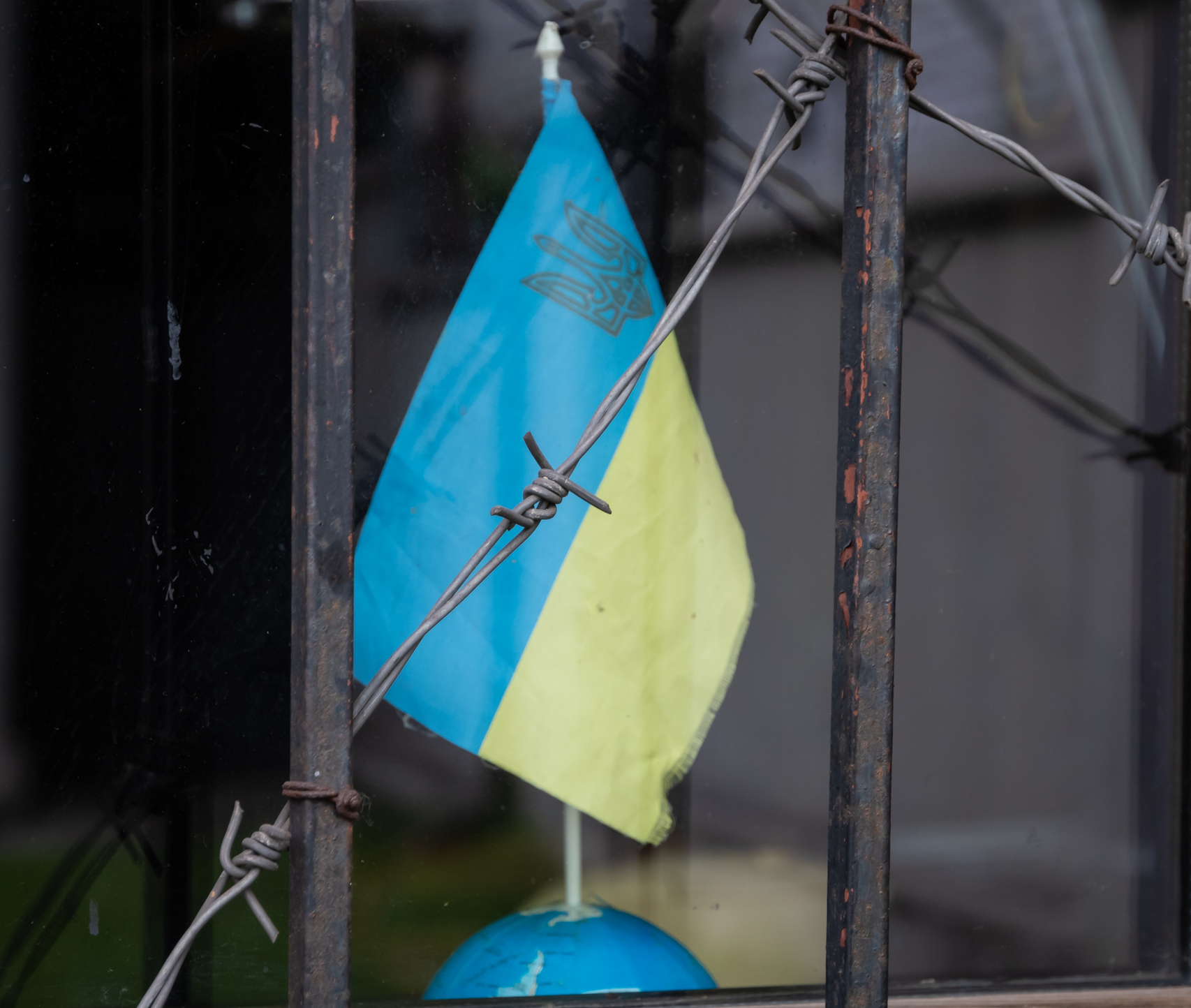

Case N3: Civilian Abduction During Funeral
A civilian woman attending a family member’s funeral in Yalta in June 2024 was illegally abducted and detained without charge for nearly three months. Her whereabouts were not disclosed, and no formal legal proceedings were initiated during that period.
In October 2024, she was suddenly charged with treason, an offense carrying a prison term of 12 to 20 years. Legal assistance was eventually secured, but the family faces severe financial barriers to continue her defense. Her case highlights the frequent occurrence of enforced disappearances, incommunicado detention, and the deprivation of liberty outside lawful procedures.
Case N3: Civilian Abduction During Funeral
A civilian woman attending a family member’s funeral in Yalta in June 2024 was illegally abducted and detained without charge for nearly three months. Her whereabouts were not disclosed, and no formal legal proceedings were initiated during that period.
In October 2024, she was suddenly charged with treason, an offense carrying a prison term of 12 to 20 years. Legal assistance was eventually secured, but the family faces severe financial barriers to continue her defense. Her case highlights the frequent occurrence of enforced disappearances, incommunicado detention, and the deprivation of liberty outside lawful procedures.
Beyond unlawful detention, survivors consistently report being subjected to torture. The following cases show the deliberate use of violence as a tool of control and intimidation, in direct violation of international law.
Case N4: Azov Battalion Member Sentenced to Life Imprisonment
N4, a member of the Azov Battalion, was captured and later sentenced to life imprisonment for allegedly firing on a civilian vehicle in Mariupol in 2022, resulting in three deaths. However, the prosecution’s narrative included multiple factual inconsistencies and failed to account for mitigating factors such as voluntary surrender and non‑obstruction of the investigation.
During pre‑trial detention, N4 was reportedly subjected to continuous torture, inhuman, and degrading treatment. The absence of a fair trial and the harsh conditions of detention raise serious concerns about both substantive justice and treatment amounting to a war crime and human rights violation.
Case N5: Accused of Using Prohibited Weapons
N5 was charged with using prohibited methods of warfare and allegedly killing civilians with an automatic weapon while following military orders. The investigative findings mischaracterized his conduct, omitting that he acted within the scope of a conventional military command and did not use banned weapons. Nevertheless, N5 was subjected to torture, cruel treatment, and degrading conditions during detention.
These acts violate the absolute prohibition of torture under both CAT and ICCPR Article 7 and may constitute war crimes under international criminal law.
Case N6: Identical Charges and Mistreatment
Like N5, N6 faced charges under Article 356 of the Russian Criminal Code for the alleged use of prohibited means of warfare. N6 was also subjected to identical forms of torture and inhuman treatment during his detention. These parallel cases underscore a pattern of systematic abuse of captured combatants by Russian authorities, in violation of international law.
If proven to be part of a broader policy targeting Ukrainian military personnel, these abuses may also rise to the level of crimes against humanity under international criminal law.
Beyond unlawful detention, survivors consistently report being subjected to torture. The following cases show the deliberate use of violence as a tool of control and intimidation, in direct violation of international law.
Case N4: Azov Battalion Member Sentenced to Life Imprisonment
N4, a member of the Azov Battalion, was captured and later sentenced to life imprisonment for allegedly firing on a civilian vehicle in Mariupol in 2022, resulting in three deaths. However, the prosecution’s narrative included multiple factual inconsistencies and failed to account for mitigating factors such as voluntary surrender and non‑obstruction of the investigation.
During pre‑trial detention, N4 was reportedly subjected to continuous torture, inhuman, and degrading treatment. The absence of a fair trial and the harsh conditions of detention raise serious concerns about both substantive justice and treatment amounting to a war crime and human rights violation.
Case N5: Accused of Using Prohibited Weapons
N5 was charged with using prohibited methods of warfare and allegedly killing civilians with an automatic weapon while following military orders. The investigative findings mischaracterized his conduct, omitting that he acted within the scope of a conventional military command and did not use banned weapons. Nevertheless, N5 was subjected to torture, cruel treatment, and degrading conditions during detention.
These acts violate the absolute prohibition of torture under both CAT and ICCPR Article 7 and may constitute war crimes under international criminal law.
Case N6: Identical Charges and Mistreatment
Like N5, N6 faced charges under Article 356 of the Russian Criminal Code for the alleged use of prohibited means of warfare. N6 was also subjected to identical forms of torture and inhuman treatment during his detention. These parallel cases underscore a pattern of systematic abuse of captured combatants by Russian authorities, in violation of international law.
If proven to be part of a broader policy targeting Ukrainian military personnel, these abuses may also rise to the level of crimes against humanity under international criminal law.
Despite the robust body of international law prohibiting the abuses and violations discussed above, the reality on the ground in Russian‑occupied areas of Ukraine reveals persistent gaps, challenges, and implementation failures. These difficulties significantly impede monitoring, accountability, and redress for victims.
Key areas on how accountability is obstructed are listed below, highlighting the urgent need to strengthen enforcement mechanisms at both national and international levels.
Despite the robust body of international law prohibiting the abuses and violations discussed above, the reality on the ground in Russian‑occupied areas of Ukraine reveals persistent gaps, challenges, and implementation failures. These difficulties significantly impede monitoring, accountability, and redress for victims.
Key areas on how accountability is obstructed are listed below, highlighting the urgent need to strengthen enforcement mechanisms at both national and international levels.
A significant number of detainees, particularly civilians abducted from occupied territories, have been forcibly disappeared by Russian military personnel.
These individuals are often detained without formal charges or judicial oversight, in some cases for months or even years, while their families are left without information about their whereabouts or even whether they are alive. The absence of legal representation and the refusal to disclose detainees’ locations or statuses violates international human rights law, including provisions of the ICCPR, CAT, and customary norms prohibiting arbitrary detention and secret imprisonment.
Further, Russian authorities consistently deny or severely restrict access to places of detention for independent observers, including the International Committee of the Red Cross (ICRC), UN monitoring missions, non‑governmental organizations, and families of detainees.
This restriction applies to both official and unofficial detention facilities. In many cases, detainees are held incommunicado, with no external communication permitted for prolonged periods. This behavior impedes humanitarian access, medical evaluations, legal visits, and independent verification of detention conditions and treatment, facilitating ongoing abuse and preventing timely documentation of violations.
A significant number of detainees, particularly civilians abducted from occupied territories, have been forcibly disappeared by Russian military personnel.
These individuals are often detained without formal charges or judicial oversight, in some cases for months or even years, while their families are left without information about their whereabouts or even whether they are alive. The absence of legal representation and the refusal to disclose detainees’ locations or statuses violates international human rights law, including provisions of the ICCPR, CAT, and customary norms prohibiting arbitrary detention and secret imprisonment.
Further, Russian authorities consistently deny or severely restrict access to places of detention for independent observers, including the International Committee of the Red Cross (ICRC), UN monitoring missions, non‑governmental organizations, and families of detainees.
This restriction applies to both official and unofficial detention facilities. In many cases, detainees are held incommunicado, with no external communication permitted for prolonged periods. This behavior impedes humanitarian access, medical evaluations, legal visits, and independent verification of detention conditions and treatment, facilitating ongoing abuse and preventing timely documentation of violations.
There are credible reports of widespread torture, degrading treatment, and harsh detention conditions in Russian‑controlled facilities.
Survivors describe physical beatings, electric shocks, mock executions, overcrowding, denial of medical care, starvation, exposure to extreme temperatures, and psychological coercion. Such treatment has been documented both in filtration camps and in formal and informal detention centers and penal colonies. In many cases, the conditions themselves, absent overt physical abuse, rise to the level of inhuman or degrading treatment under international law.
Detainees often emerge with serious physical and psychological trauma, yet they do not have their medical records and there are few mechanisms available for redress or documentation while in custody.
There are credible reports of widespread torture, degrading treatment, and harsh detention conditions in Russian‑controlled facilities.
Survivors describe physical beatings, electric shocks, mock executions, overcrowding, denial of medical care, starvation, exposure to extreme temperatures, and psychological coercion. Such treatment has been documented both in filtration camps and in formal and informal detention centers and penal colonies. In many cases, the conditions themselves, absent overt physical abuse, rise to the level of inhuman or degrading treatment under international law.
Detainees often emerge with serious physical and psychological trauma, yet they do not have their medical records and there are few mechanisms available for redress or documentation while in custody.
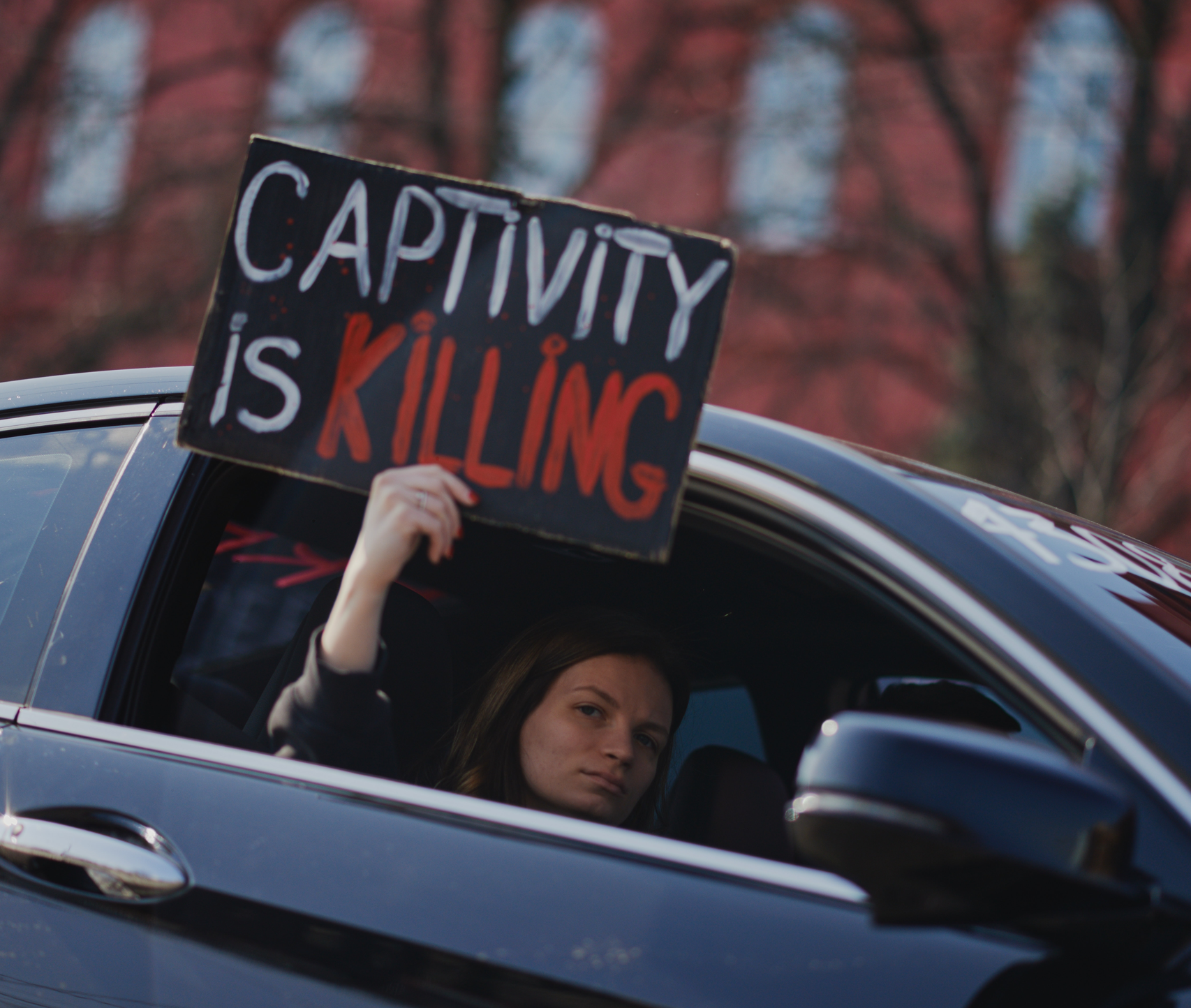

Legal systems and processes have been systematically manipulated or misused to prosecute Ukrainian civilians and captured combatants. Individuals are routinely accused of terrorism, extremism, or collaboration under Russian domestic law, charges that are often spurious and fail to conform to international legal standards.
Legitimate combatants are denied POW status, in violation of IHL, and are instead tried as criminals without due process protections. Courts often fail to consider mitigating factors such as voluntary surrender, non‑obstruction of investigations, absence of combat activity, and convictions are based on coerced confessions, undisclosed or fabricated evidence, or proceedings that blatantly disregard fair trial standards.
Legal systems and processes have been systematically manipulated or misused to prosecute Ukrainian civilians and captured combatants. Individuals are routinely accused of terrorism, extremism, or collaboration under Russian domestic law, charges that are often spurious and fail to conform to international legal standards.
Legitimate combatants are denied POW status, in violation of IHL, and are instead tried as criminals without due process protections. Courts often fail to consider mitigating factors such as voluntary surrender, non‑obstruction of investigations, absence of combat activity, and convictions are based on coerced confessions, undisclosed or fabricated evidence, or proceedings that blatantly disregard fair trial standards.
Although some investigations into detention‑related abuses are underway, including those related to SIZO‑2 and the case of Victoria Roshchyna, impunity remains the norm in practice. Command responsibility, which holds superiors accountable when they knew or should have known of crimes committed by subordinates and failed to prevent or punish them, is rarely recognized, investigated, or prosecuted. As a result, the chain of accountability remains obscured, and cases often go cold.
International judicial mechanisms, such as the ICC, face jurisdictional and political hurdles that delay or dilute enforcement. Domestic Ukrainian courts and law enforcement system also face severe limitations in terms of jurisdiction over foreign perpetrators, evidentiary access and capacity to deal with immense volume of cases. Consequently, few prosecutions have reached senior decision‑makers, and victims’ access to justice remains limited.
Ongoing violations are compounded by serious evidentiary challenges. In cases involving deaths in custody, bodies are sometimes returned with signs of organ removal or suspicious handling, complicating forensic analysis.
Additionally, documentation is often destroyed, altered, or inaccessible to independent investigators. All these issues jeopardize the chain of custody, hindering forensic investigations, and undermining any future criminal accountability efforts.
Although some investigations into detention‑related abuses are underway, including those related to SIZO‑2 and the case of Victoria Roshchyna, impunity remains the norm in practice. Command responsibility, which holds superiors accountable when they knew or should have known of crimes committed by subordinates and failed to prevent or punish them, is rarely recognized, investigated, or prosecuted. As a result, the chain of accountability remains obscured, and cases often go cold.
International judicial mechanisms, such as the ICC, face jurisdictional and political hurdles that delay or dilute enforcement. Domestic Ukrainian courts and law enforcement system also face severe limitations in terms of jurisdiction over foreign perpetrators, evidentiary access and capacity to deal with immense volume of cases. Consequently, few prosecutions have reached senior decision‑makers, and victims’ access to justice remains limited.
Ongoing violations are compounded by serious evidentiary challenges. In cases involving deaths in custody, bodies are sometimes returned with signs of organ removal or suspicious handling, complicating forensic analysis.
Additionally, documentation is often destroyed, altered, or inaccessible to independent investigators. All these issues jeopardize the chain of custody, hindering forensic investigations, and undermining any future criminal accountability efforts.
To address the serious and ongoing violations of international law documented in occupied and conflict‑affected areas of Ukraine, the following recommendations are directed at states, intergovernmental bodies, international organizations, and civil society actors.
To address the serious and ongoing violations of international law documented in occupied and conflict‑affected areas of Ukraine, the following recommendations are directed at states, intergovernmental bodies, international organizations, and civil society actors.
The violations of international law documented in 2024 and 2025 demonstrate not only the continuation of earlier abuses, but an escalation in scale and severity. Arbitrary detention, torture, incommunicado detention, enforced disappearance, and forced transfers remain common across Russian‑occupied areas of Ukraine.
These practices target civilians, prisoners of war, journalists, and vulnerable groups, including women and children, indiscriminately. Numerous survivors report not just ill‑treatment, but systematic torture, starvation, and medical neglect, carried out in circumstances that often meet the threshold of war crimes or crimes against humanity.
The international legal framework is well‑established and well‑known, encompassing state‑level accountability under international humanitarian and human rights law, as well as individual accountability under international criminal law. The challenges and gaps remain to be a consistent concern. Accountability mechanisms remain fragmented and delayed, while access to detainees, evidence, and affected populations remain obstructed.
Urgent, coordinated action is needed. Protection of civilians and prisoners of war must be prioritized, evidence of systematic abuses must be preserved, and perpetrators must be identified and held accountable under the law at both the national and international level. The responsibility to act lies with the entirety of the international community, which has both a legal responsibility and a moral obligation to uphold the rule of law. The credibility of the international system and its ability to deter future atrocities depends on its response now to the ongoing abuses in Ukraine.
The violations of international law documented in 2024 and 2025 demonstrate not only the continuation of earlier abuses, but an escalation in scale and severity. Arbitrary detention, torture, incommunicado detention, enforced disappearance, and forced transfers remain common across Russian‑occupied areas of Ukraine.
These practices target civilians, prisoners of war, journalists, and vulnerable groups, including women and children, indiscriminately. Numerous survivors report not just ill‑treatment, but systematic torture, starvation, and medical neglect, carried out in circumstances that often meet the threshold of war crimes or crimes against humanity.
The international legal framework is well‑established and well‑known, encompassing state‑level accountability under international humanitarian and human rights law, as well as individual accountability under international criminal law. The challenges and gaps remain to be a consistent concern. Accountability mechanisms remain fragmented and delayed, while access to detainees, evidence, and affected populations remain obstructed.
Urgent, coordinated action is needed. Protection of civilians and prisoners of war must be prioritized, evidence of systematic abuses must be preserved, and perpetrators must be identified and held accountable under the law at both the national and international level. The responsibility to act lies with the entirety of the international community, which has both a legal responsibility and a moral obligation to uphold the rule of law. The credibility of the international system and its ability to deter future atrocities depends on its response now to the ongoing abuses in Ukraine.
Vladimir Zhbankov on the fate of kidnapped Ukrainian citizens
By Vladimir Zhbankov
September 30, 2025
 Article
Article “Poshuk. Polon”: The fate of tens of thousands of military and civilian Ukrainians remains unknown
By Vladimir Zhbankov
November 19, 2024
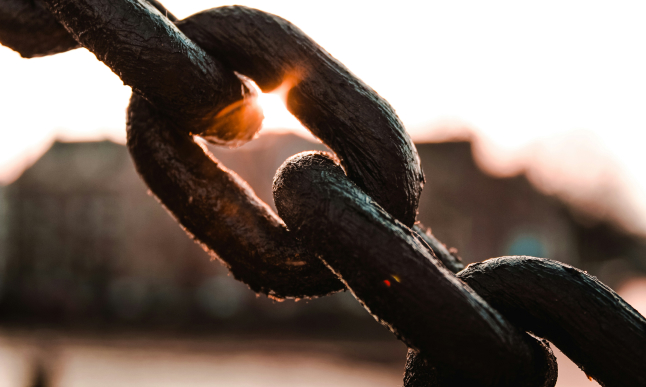 Interview
Interview Sergei Davidis and Ivan Pavlov on the lessons of last year’s exchange, the future of political prisoners, and practical tools for fighting for freedom
By Free Russia Foundation
August 05, 2025

Vladimir Zhbankov on the fate of kidnapped Ukrainian citizens
By Vladimir Zhbankov
September 30, 2025
 Article
Article “Poshuk. Polon”: The fate of tens of thousands of military and civilian Ukrainians remains unknown
By Vladimir Zhbankov
November 19, 2024
 Interview
Interview Sergei Davidis and Ivan Pavlov on the lessons of last year’s exchange, the future of political prisoners, and practical tools for fighting for freedom
By Free Russia Foundation
August 05, 2025
